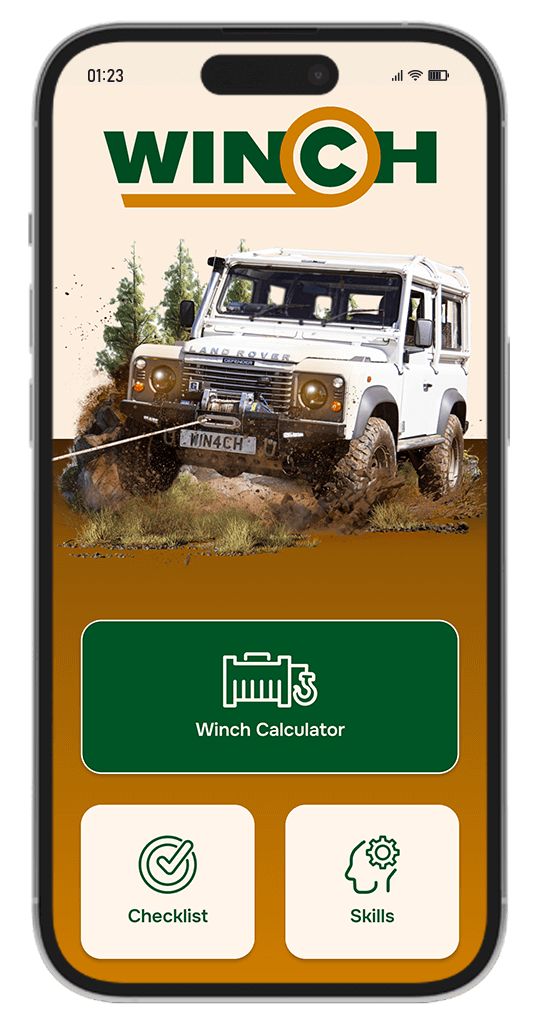
A winch calculator
is my winch up to the job?
Many factors affect the force required to move a vehicle, and these forces can quickly exceed the capabilities of a winch.
Winch not only estimates the force required to move your vehicle, but also the percentage of your winch’s capability throughout the winching process.
Calculations are based upon factors such as vehicle weight, type of terrain, slope incline, the number of cable spools on the winch drum and the power of the winch. Formulas used are widely available, but be warned, all calculations will be based on estimations. Ground conditions vary greatly, and this will affect accuracy.
Just remember, if you’re using over 75% of your winch capacity, it’s time to stop and think…
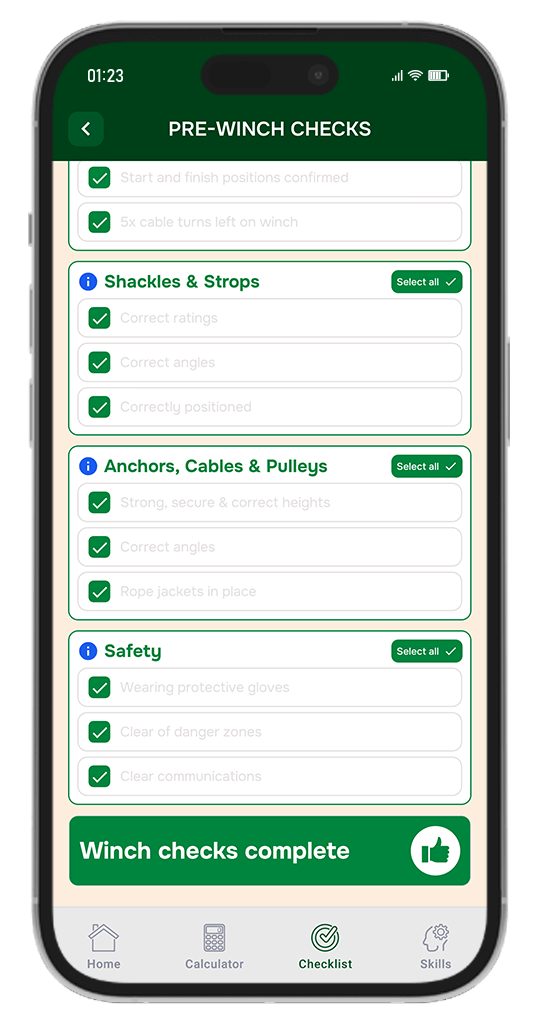
Safety Checklist
12 simple questions that could save your life
In healthcare and aviation, we know that not rushing saves lives. A pause of as little as 10-seconds can make all the difference in being able to spot potential problems.
Designed around the same proven safety methods, the Winch checklist asks 12 simple questions to ensure you have considered the main risk areas before you start to winch.
As you confirm you’ve checked each set of three questions, they will go green, enabling you to move onto the next.
When they’re all green – you can winch.
Not sure what you’re checking, click on the blue information box and it will take you to the appropriate skills section.
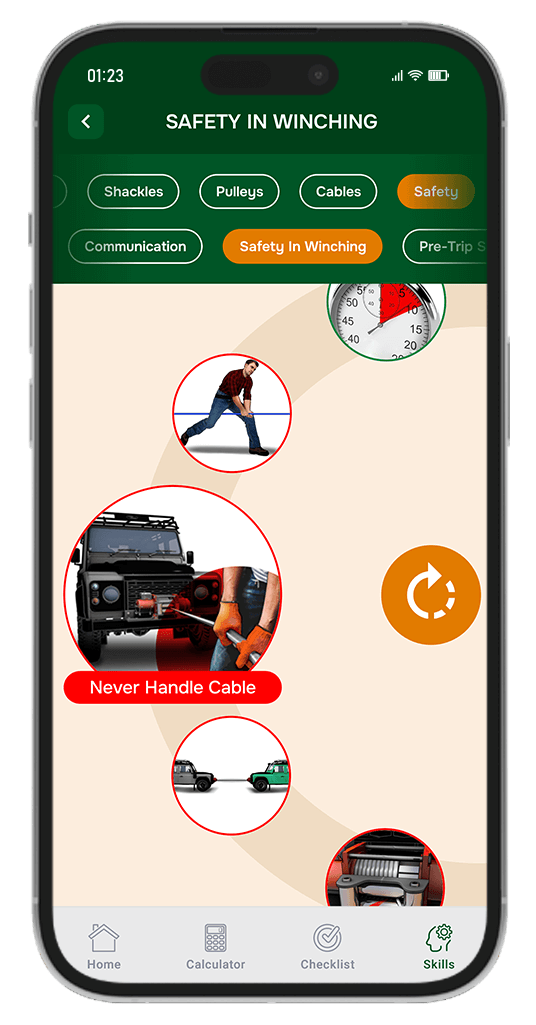
Skills and knowledge
If you don’t know what you’re doing, look here
There is no substitute for formal winch training. However, we recognise that many people who have a winch fitted on their vehicle may have never learned how to use it properly.
This section covers some of the fundamental areas of winching practice that will help keep you safe. From the most basic information about winching equipment, through to some more advanced techniques to help maximise winching efficiency.
Most importantly, there is a skills section on safety, communication and pre-trip checks.

A winch calculator
is my winch up to the job?
Many factors affect the force required to move a vehicle, and these forces can quickly exceed the capabilities of a winch.
Winch not only estimates the force required to move your vehicle, but also the percentage of your winch’s capability throughout the winching process.
Calculations are based upon factors such as vehicle weight, type of terrain, slope incline, the number of cable spools on the winch drum and the power of the winch. Formulas used are widely available, but be warned, all calculations will be based on estimations. Ground conditions vary greatly, and this will affect accuracy.
Just remember, if you’re using over 75% of your winch capacity, it’s time to stop and think…

Safety Checklist
12 simple questions that could save your life
In healthcare and aviation, we know that not rushing saves lives. A pause of as little as 10-seconds can make all the difference in being able to spot potential problems.
Designed around the same proven safety methods, the Winch checklist asks 12 simple questions to ensure you have considered the main risk areas before you start to winch.
As you confirm you’ve checked each set of three questions, they will go green, enabling you to move onto the next.
When they’re all green – you can winch.
Not sure what you’re checking, click on the blue information box and it will take you to the appropriate skills section

Skills and knowledge
If you don’t know what you’re doing, look here
There is no substitute for formal winch training. However, we recognise that many people who have a winch fitted on their vehicle may have never learned how to use it properly.
This section covers some of the fundamental areas of winching practice that will help keep you safe. From the most basic information about winching equipment, through to some more advanced techniques to help maximise winching efficiency.
Most importantly, there is a skills section on safety, communication and pre-trip checks.
The calculator – step by step
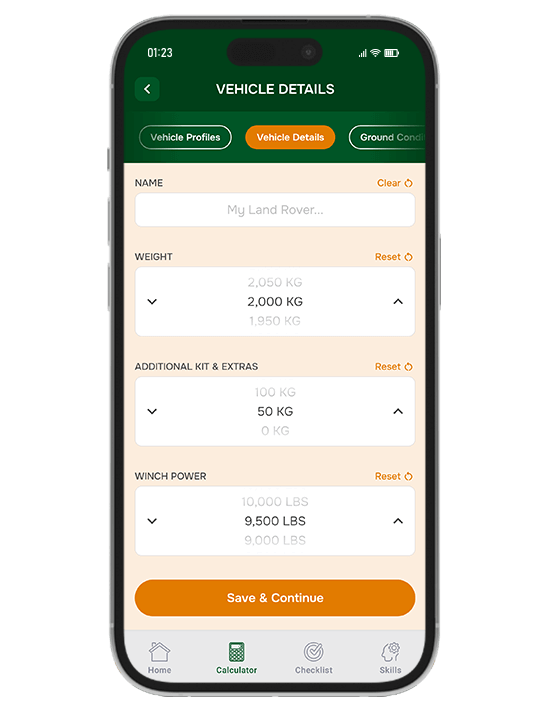
Step 1
Enter your make & model weight, additional kit weight & winch power as shown
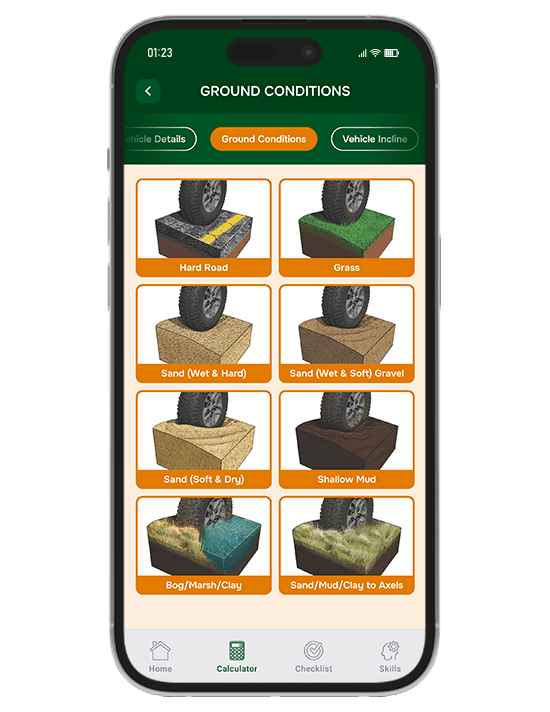
Step 2
Select your ground conditions – anything from Hard Road base to Sand / Mud Clay
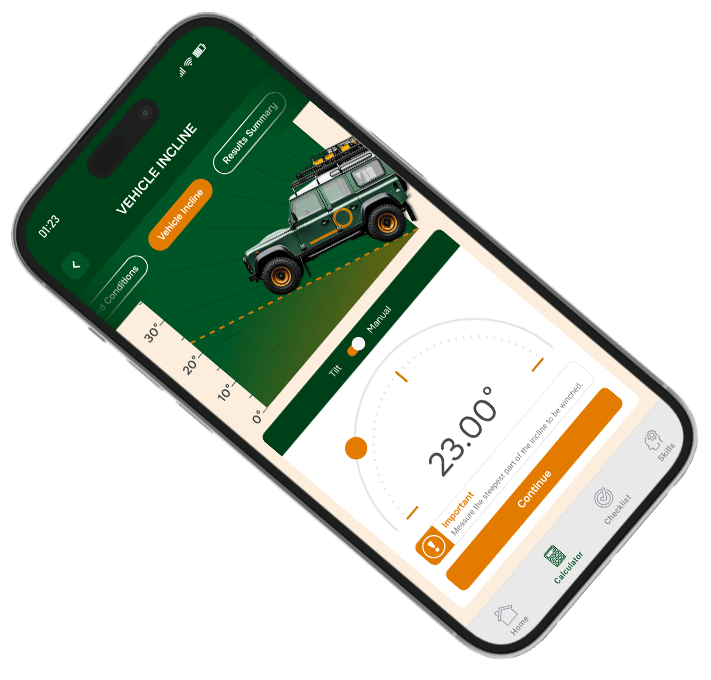
Step 3
Enter your incline – always measure the steepest part of the incline.
You can enter the incline manually or tilt your phone to establish the correct angle needed.
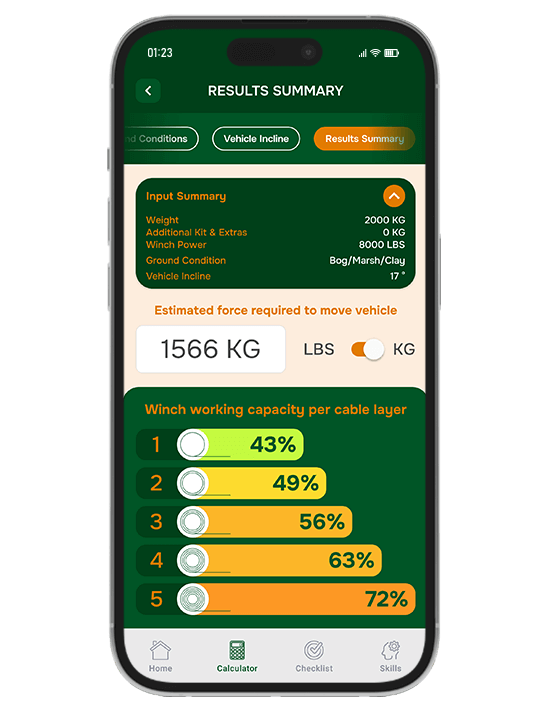
Step 4
View your winch summary – estimated force required to move vehicle with full estimated winch working capacity per cable layer
Please remember
Winch is:
- An app for people with no proper training
- An app to try and keep you safe
- An app to use when you don’t know what else to do
Winch is not:
- Formal winch training or a winching text book
- Designed for ‘expert’ or experienced winchers
- An excuse to avoid expert advice and training



